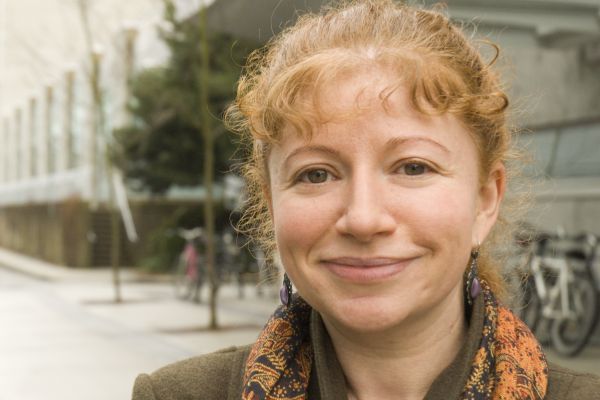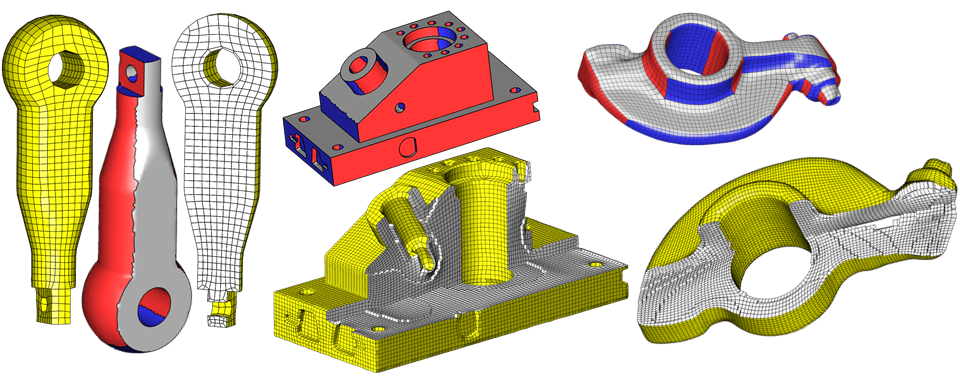
Professor Alla Sheffer named IEEE Fellow
UBC Computer Science Professor Alla Sheffer will be inducted as an Institute of Electrical and Electronics Engineers (IEEE) Fellow, effective January 1, 2021, for her contributions to mesh parameterization and hexahedral meshing.
IEEE Fellow is a distinction reserved for select IEEE members whose extraordinary accomplishments in any of the IEEE fields of interest are deemed fitting of this prestigious grade elevation. Each year, following a rigorous evaluation procedure, the IEEE Fellow Committee recommends a select group of recipients for elevation to IEEE Fellow. Less than 0.1% of voting members are selected annually for this member grade elevation.
Sheffer's novel approaches lead to significant advancements in research and practice
Surface parameterization, or computation of mappings between surfaces and different parameter domains, has many applications in geometry processing. Sheffer has developed several widely used parameterization methods that combine mathematical insights with practical solutions, advancing the theoretical foundations of parameterization while also providing practical software tools. She developed the ABF and ABF++ parameterization methods which are included in most major modeling software packages and are used throughout the CAD/CAE, animation, computer graphics and game development industries. These methods are referenced in every book and survey on geometry processing and is taught in many advanced modeling courses.

Hexahedral, or cuboid, meshes are considered the ‘gold-standard’ for mesh discretization. However, due to the numerous constraints such meshes need to satisfy to be usable in simulation environments, hexahedral meshes have been generated for decades using semi-manual methods. Dr. Sheffer’s recent PolyCube-based meshing method proposed the first drastically different, robust approach to this problem in 20 years, making the prospect of fully automatic quality hex meshing of general geometries increasingly possible. Dr. Sheffer’s work has reawakened interest in this topic in the geometry processing community leading to multiple follow-up methods.
The path to success
Alla received her PhD from Hebrew University in 1999 and is currently a full professor at the University of British Columbia, Canada, where she investigates algorithms for shape modeling and analysis in the context of computer graphics applications. She is known for her research on mesh parameterization, hexahedral meshing, computational garment design, and perception-driven shape modeling. Dr. Sheffer’s research aims to make creation and manipulation of virtual shapes accessible to a wide user base, enabling artists, fashion designers, DIY enthusiasts, and others to effortlessly create diverse 3D content. Her research aims to automate such challenging and currently mostly manual tasks as reconstructing complex 3D mechanisms, structures, and artifacts from raw product designer sketches; modeling bespoke objects that simultaneously satisfy fabrication, functionality and aesthetic constraints; and developing virtual and augmented reality interfaces for shape modeling and editing.
Dr. Sheffer received the Canadian Human Computer Communications Society Achievement Award and a UBC Killam Research Award. She is a Fellow of the Royal Society of Canada, and a Member of the SIGGRAPH Academy. Her research has been supported by faculty awards from IBM, Google, and Adobe, a Killam Research Fellowship, and an Audi Production Award. Sheffer has served as an Associate Editor of all three major computer graphics journals (ACM Transactions on Graphics, IEEE Transactions on Visualization Computer Graphics, and Eurographics Computer Graphics Forum). She served as a program co-chair for Eurographics, Symposium on Geometry Processing, and Shape Modeling. Dr. Sheffer had co-authored over 100 peer-reviewed publications, including 50 papers in ACM Transactions on Graphics, the topmost competitive graphics venue.
About the IEEE
The IEEE is the world’s leading professional association for advancing technology for humanity. Through its 400,000+ members, the association is a leading authority on a wide variety of areas ranging from aerospace systems, computers, and telecommunications to biomedical engineering, electric power, and consumer electronics. The IEEE publishes 30 per cent of the world’s literature in the electrical and electronics engineering and computer science fields, and has developed more than 1,300 active industry standards.